The Real Story Behind The Names Of Music’s Most Iconic Bands

Listening to music from a band you loved can have a magical quality to it. The association of the song can be so strong sometimes that even just seeing the band’s name or logo can instantly transport you to a simpler time when you were blasting their tunes in a car or cheering with thousands of others, demanding an encore.
The names of these famous bands are now iconic, cemented in music history, but these groups didn’t always go by the moniker we know them by today. While they certainly have become household names, it makes you wonder if bands like Queen, Black Sabbath, and many others would have been as popular if they stuck with their original name choices. Check out how the some of music’s most historic groups came up with their name…
The Rolling Stones

The band that would become one of the most famous rock musicians in music history ended up rubbing elbows with music icon Muddy Waters in 1981. They met him at the Checkerboard Lounge, a famous Chicago blues.
Little did the group know how much their lives would change after this meeting. Upon hearing Waters’ 1950 blues tune “Rollin Stone,” they knew this was the name they would go by forever.
The Doors

The name that Jim Morrison and The Doors settled on for their historic group has more of a deeper meaning than some of the other names on this list. The moniker “The Doors” was actually a nod to a few literature references.
Taking inspiration from an 18th-century post-French Revolution text by William Blake called The Marriage of Heaven and Hell, author Aldous Huxley named a book The Doors Of Perception. Jim Morrison and his cohorts loved the profundity of the references, and settled on it.
Red Hot Chili Peppers
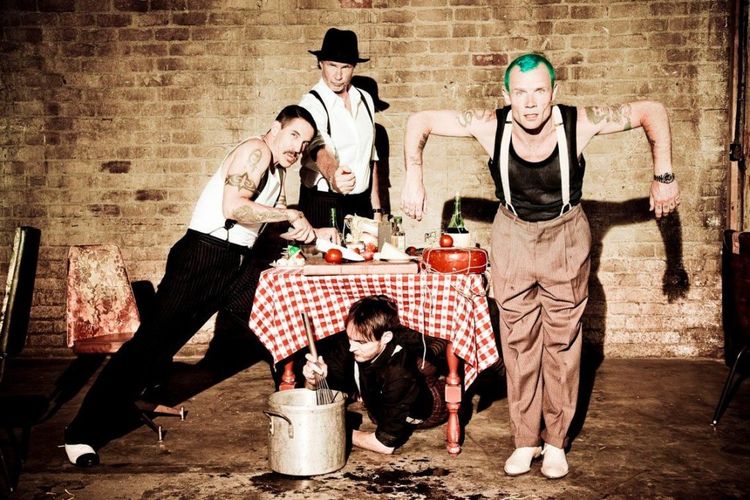
What started as a flight of fancy by high school friends Anthony Keidis, Flea, Hillel Slovak, and Jack Irons has turned out to be a solid business venture for all. They say that it was related to old-school Jazz band names like Louis Armstrong’s Hot Five and other bands that had “Red Hot” in it.
The group originally started as Tony Flow and the Miraculously Majestic Masters of Mayhem. By comparison, the name Red Hot Chili Peppers isn’t very long, and seemed to be much more marketable.
Heart

In the early ’70s, Ann Wilson found herself singing lead for a band called White Heart. Once Wilson became a member, the group decided to call themselves Hocus Pocus.
After Ann met and fell in love with bandmate, Roger Fisher’s brother, Mike, the pair joined Roger and bassist Steve Fossen to regroup. For some reason, the “white” was taken away, and there was the first iteration of Heart.
Motley Crue

The founder and bassist of Motley Crue, Nikki Sixx thought about calling his new group “Christmas,” but naturally, the other members of the band despised it. The final name came through a brainstorming session.
When guitarist Mick Mars had played with the group “White Horse” he referred to thems as “a motley looking crew.” He then wrote the name down as “Mottley Cru.” Eventually they adjusted it to be Motley Crue, with the two umlauts being inspired by a German beer called “Lowenbrau.”
Journey
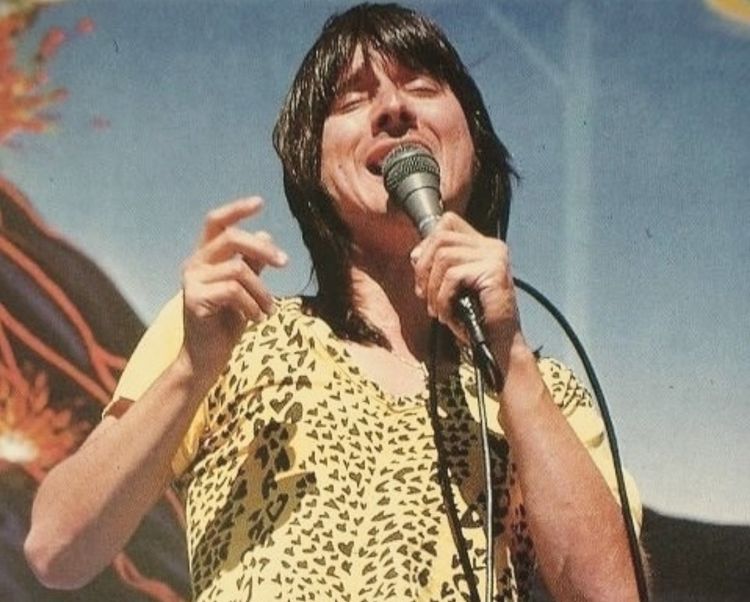
Original Journey band members came together as Golden Gate Rhythm Section in San Francisco in 1973. Opting for something more original, they eventually hosted a radio contest for inspiration of the new name.
Unfortunately, the radio contest produced disappointing results, and they came up empty. But thanks to roadie John Villanueva, he thought of the idea “Journey,” and the name stuck.
Pearl Jam
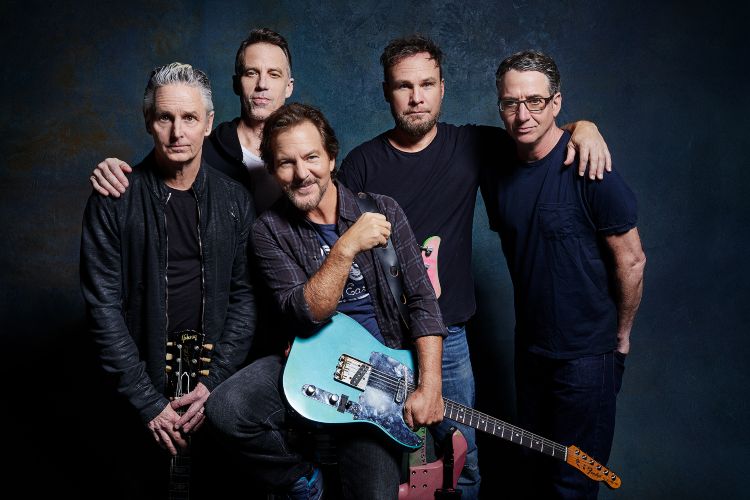
This Seattle-based rock band consists of a fab five–Eddie Vedder, Mike McCready, Stone, Gossard, Jeff Ament, and Matt Cameron. They originally called their band “Mookie Blaylock” after an NBA player, but they changed it after trademark issues.
Frontman Eddie Vedder has said that the name “Pearl Jam” was a tribute to his great-grandmother Pearl Brunner. Though, guitarist Mike McCready has said that Jeff Ament developed “Pearl” and that “Jam” was tacked on after seeing a Neil Young and Crazy Horse concert, during which they were “jamming.”
Led Zeppelin
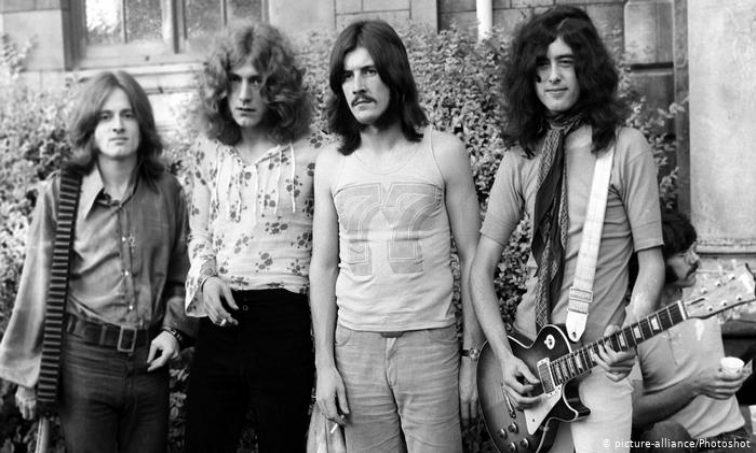
A collaboration between Keith Moon and John Entwistle, members of The Who, with Jimmy Page and John Paul Jones helped make music history. They had joined together on a song from Jeff Beck called “Beck’s Bolero,” in 1966 and started the conversation about creating a new group.
When Jones, John Bonham, and Robert Plant decided to make a band in 1968, Jimmy Page remembered a joke that Moon or Entwistle had said “that it would go over like a lead balloon.” And thus Led Zeppelin was born.
Metallica
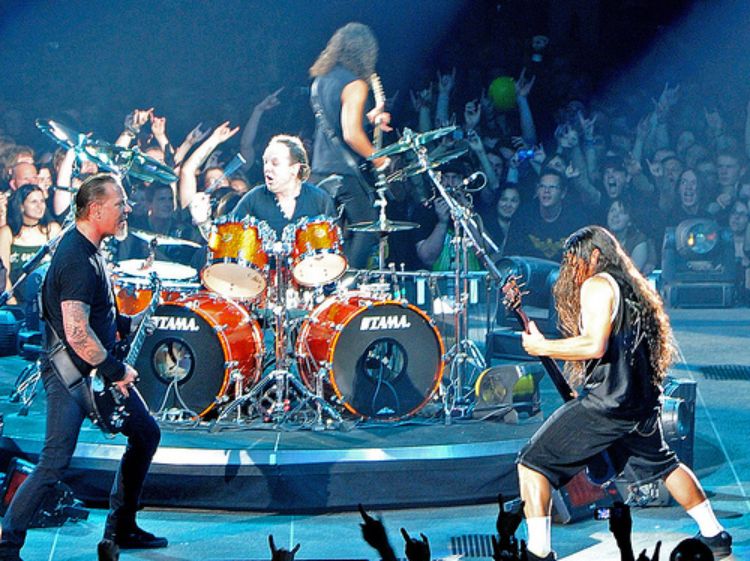
Metallica was actually just a throwaway name that Lars Ulrich’s friend was thinking of for a rock metal fanzine (a magazine published by fans) he was starting. Another option for the magazine name was MetalMania.
When Ulrich found out his friend wasn’t going to use the name Metallica for his publication, he immediately snatched it. There is a 1982 compilation album called Metal Massacre I that actually lists the band as “Mettalica,” which is an incorrect spelling.
Jefferson Airplane/ Starship
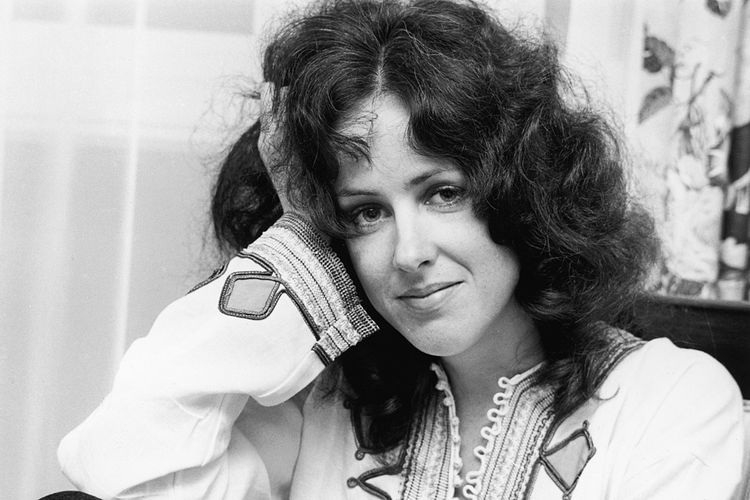
In the 1960s, the San Francisco music scene was known for some names that could sound a bit over-the-top. The counterculture movement inspired bands with a lot of interesting names, some of which were Moby Grape or Quicksilver Messenger Service.
A group called Blind Lemon Jefferson Airplane was not as strange as it might be today. They named it after blues artist Blind Lemon Jefferson, but later decided to shorten it to Jefferson Airplane. In a reinvented version of the group, they shortened it to Jefferson Starship, thanks to Paul Kantner’s sci-fi obsession.
Nirvana

Despite just a short stint in the limelight, Nirvana helped define the punk rock music scene of the early ’90s. Frontman and lead vocalist, Kurt Cobain was a visionary in musical style before his tragic passing in 1994.
While Nirvana is part of music history, they played under many different names before that one, some of which included “Throat Oyster,” “Skid Row,” and “Ted, Ed, and Fred.” Cobain chose the Buddhist term “nirvana,” which means the release from a cycle of rebirth and suffering, and told it to his bandmates about how it means “attaining perfection.”
Bee Gees

The Bee Gees are known as one of the longest-running acts in music history, forming in 1958 and playing until their official retirement in 2012. Like Fleetwood Mac and a few others, their name isn’t too big of a mystery.
While most have speculated that the B and G stood for the Brothers Gibb, it’s actually a misnomer. The real story is that it is a tribute to three people with those initials, oldest brother Barry Gibb, radio DJ Bill Gates, and their friend speedway promoter and driver, Bill Goode. The “Brothers Gibb” aspect is purely coincidental.
Eagles

Diehard fans of the group will make sure that you call this band “Eagles” and not “The Eagles.” Friend and comedian Steve Martin said it should be “The Eagles,” but Glen Frey insisted on omitting the “the.”
The name is usually credited with Bernie Leadon when he was under the influence while in the Mojave Desert. He remembered reading about the Hopi’s tribe respect for the animal. J.D. Souther said the name was decided when Frey exclaimed “eagles” when they saw them in the desert.
Guns N’ Roses
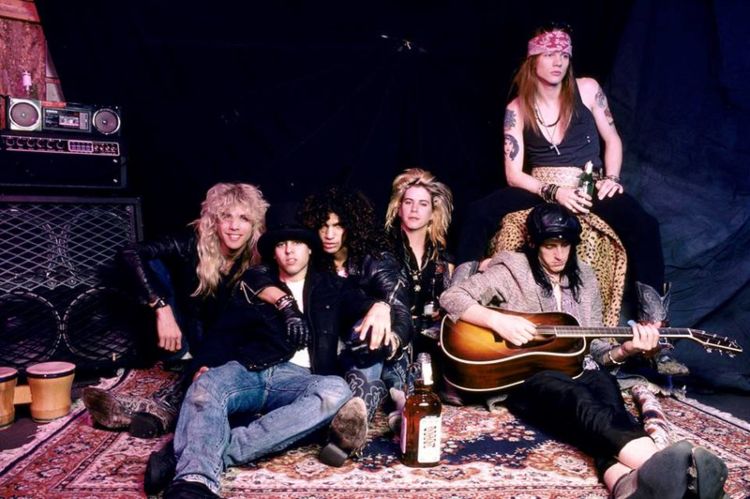
Izzy Stradlin was part of Hollywood Rose and was roommates with member of the band L.A. Guns Tracii Guns. When L.A. Guns found themselves without a lead singer, Axl Rose stepped in, along with Ole Beich and Bob Gardner.
The merged group realized that the name that noted a combination of the two separate bands was a good idea. Guns N’ Roses proved to be a much more successful name than some of the possible alternative options, such as Heads Of Amazon and AIDS.
Alice Cooper

Alice Cooper the singer was actually born Vincent Damon Furnier, and he had formed a band with his cross-country teammates from high school in 1964. They were originally known as The Earwigs, and did many parodies of Beatles’ songs.
They eventually renamed their band The Spiders, and then later again into Nazz in 1967. By the next year, that name Nazz had been nabbed up by Todd Rundgren. They settled on “Alice Cooper” because it sounded wholesome and innocuous, a stark contrast to the band’s image and music.
Aerosmith
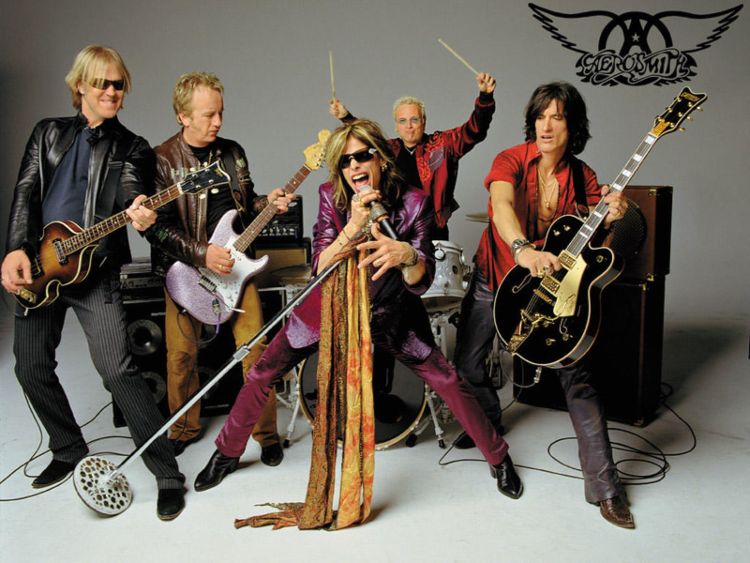
It wasn’t until Joey Kramer partnered with Joe Perry and Steven Tyler that the trio began experimenting with combinations and crafting killer logos. Steven Tyler had been a drummer in his former band, Chain Reaction, and was adamant that he wanted to be frontman and vocalist if he were to join.
The band had apparently spent afternoons watching Three Stooges reruns. It was after one of these sessions when Joey Kramer said he would “aerosmith” on his notebooks, the name having popping into his head after Harry Nilsson’s album Aerial Ballet. Kramer convinced the others of the name after dismissing another possible name: Spike Jones.
Black Sabbath
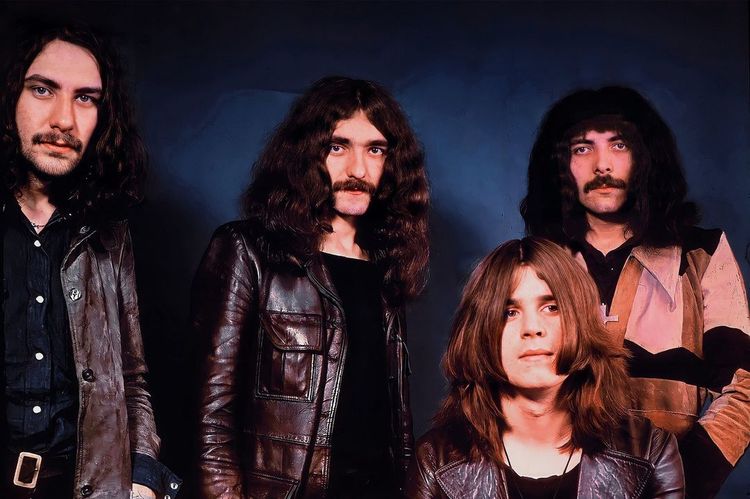
The members of Black Sabbath, Tony Iommi, Bill Ward, Geezer Butler, and frontman Ozzy Osbourne, had a few iterations such as the name Earth, which Osbourne happened to hate. It’s likely also true that if they went with one of the original band names, which was the Polka Tulk Blues Band, they may not have gotten very far.
In 1969, Judas Priest singer Rob Halford called one of their songs “probably the most evil song ever written.” The Black Sabbath name was settled on after band members became transfixed by a 1963 spooky Boris Karloff film with the same name and aimed for to make the “music equivalent of horror films.”
U2

U2 is a legendary bond, partly from the longevity of their relevance. Most people surely know the Irish rock band and their frontman and lead vocalist Bono, who started out at first in the post-punk genre, but has since evolved and reinvented themselves starting in the 1990s.
The band was formed while they were teenagers at the same school, with limited musical experience. They went by other names such as “Larry Mullen Band” and “Feedback” before learning about a famous spy plane called U-2. Bono has said that the name came from their interactions with audience members, as in “you too.”
Kiss
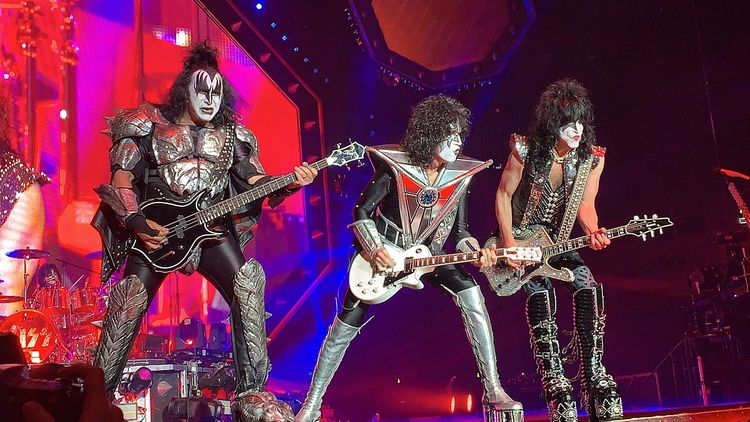
It’s pretty likely that the name “Wicked Lester” wouldn’t resonate too well for a band that wanted to make it big. The group who became known for their members painting their faces and wearing outrageous outfits wisely decided to go by Kiss.
When determining how to pick their name, Peter Criss mentioned being in an earlier band that was called Lips. Vocalist and guitarist Paul Stanley riffed on that and picked the name “Kiss,” which ended up serving them well.
Bob Dylan
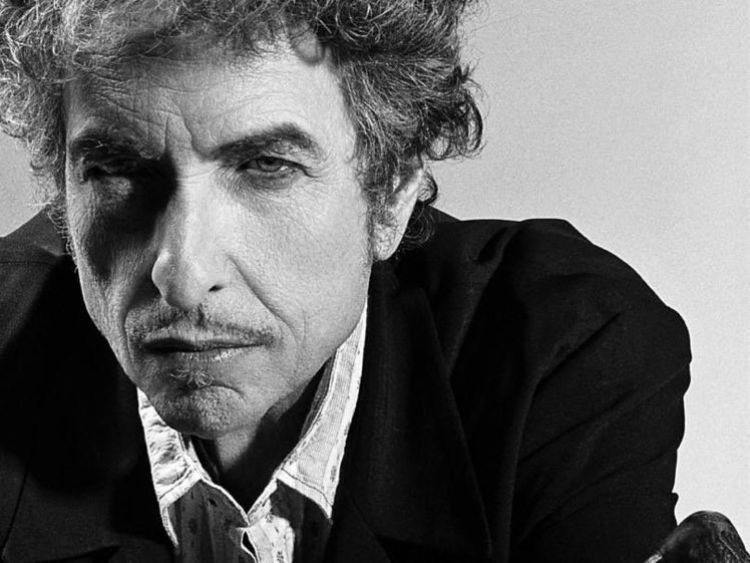
Minnesota-born Bob Dylan was born under the name Robert Zimmerman. Even in high school, he had told a girlfriend that he planned on devoting a life to music under the name Bob Dillon, which he changed for stylistic reasons.
He was apparently a fan of Matt Dillon, the name of the sheriff on the classic western TV show Gunsmoke. He would later tell people that the name was to honor his mother’s maiden name of Dillon, which wasn’t true.
Elton John

Reginald Kenneth Dwight was born in Pinner, Middlesex in 1947. He went by the nickname Reggie as he gained experience performing at bars on weekend up through when he met lyricist Bernie Taupin.
The singer was looking to change his name and decided to go with “Elton John.” He chose his stage name to honor two members of his former band Bluesology, named Elton Dean and John Baldry. Contrary to what’s in the biopic Rocketman, he did not get it from friend John Lennon.
Lynyrd Skynyrd
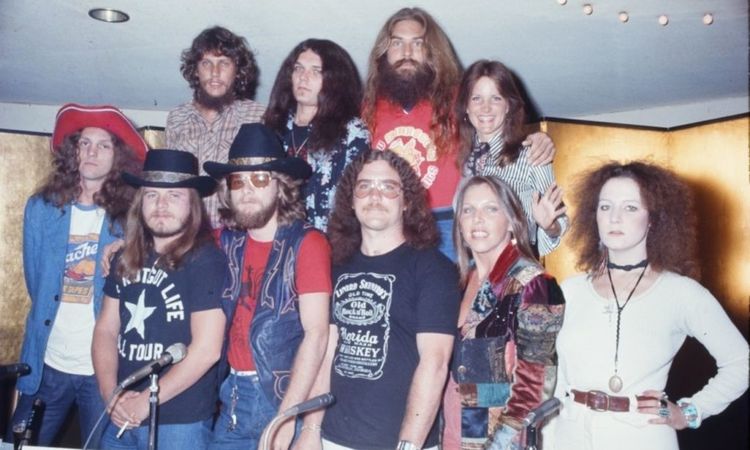
In 1964, a group that afterwards eventually went through several lineup changes was called My Backyard. The band known for such classic songs as “Sweet Home Alabama” and “Free Bird” was officially called Lynyrd Skynyrd in 1969, with a release of their first album in 1973.
In 1977, a place crash famously killed lead vocalist Ronnie Van Zant, Steve Gaines, and Cassie Gaines. They reformed in 1987 with Ronnie’s brother Johnny. The band that became icons of Southern rock, got their name after a high-school gym teacher they had had named Leonard Skinner, who always gave them a hard time about going against school rules with their long hair.
Foo Fighters
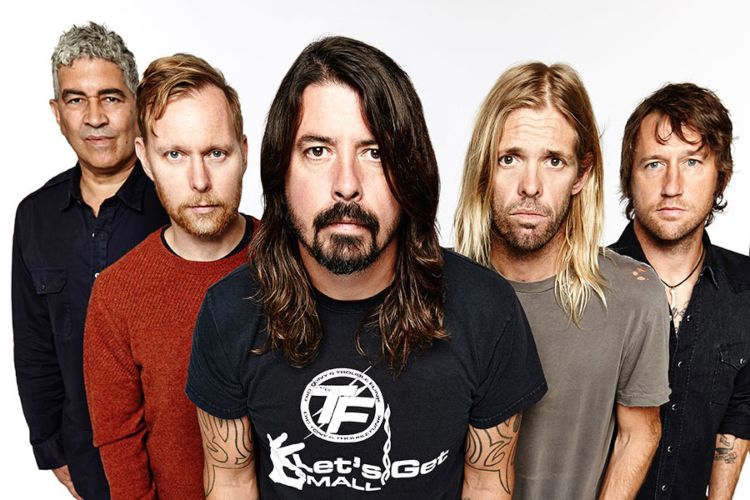
If it weren’t for the untimely death of Kurt Cobain, Foo Fighters very likely wouldn’t exist. After his passing in 1994, legendary drummer Dave Grohl tried to form a one-man band after leaving Nirvana.
He spent some contemplative downtime investigating UFO sightings. After learning that the term “foo fighters” was coined by aircraft pilots for UFOs in World War II, he knew he’d found the perfect name, and 12 Grammys were to follow.
AC/DC

AC/DC frontmen Malcolm, and Angus Young have their sister Margaret to thank for the recognizable logo and name that millions have grown to know and love. The story goes that she saw the famous letters on a sewing machine, which meant the unit could be powered by alternating or direct current.
The brothers felt that the name perfectly encapsulated the band’s raw energy, power-driven performances of the music they would go on to make. You know you’ve made it when your band name completely replaces the original meaning of a term in modern lexicon.
Cream
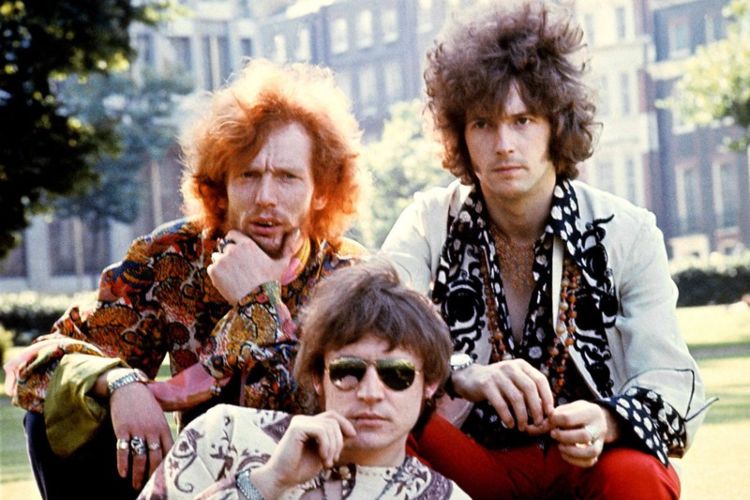
Jack Bruce, Ginger Baker, and icon Eric Clapton were huge in the late 1960s, and very much knew it. They blew up along the U.K. music scene before collaborating together. They had made it big as part of the Yardbirds and John Mayall.
Cream was a name chosen in reference to their big egos. They considered themselves the cream of the crop when it came to being part of the ’60s British blues genre.
Matchbox Twenty

Rob Thomas, Brian Yale, and Paul Douchette were living in Orlando, Florida and were members of a group called Tabitha’s Secret. The three of them then decided to form their own group, which would be called Matchbox 20, and later spelled “Matchbox Twenty.”
While Thomas and Douchette were waiters at a restaurant in Orlando, a guy walked in wearing a big number 20 on his softball jersey, with patches on it. The only word Douchette could make out was the word “matchbox.” He says that he initially wanted to start a clothing company, with the name. Thomas and the others hated the name at first calling it “the dumbest name in the world.” But a month later, they settled on that.
Fleetwood Mac
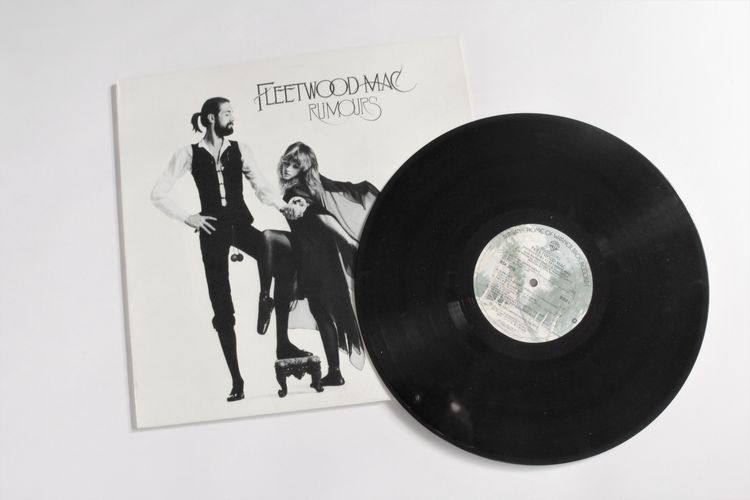
Fleetwood Mac was a band name that was made for practical and diplomatic reasons. Upon finding out that the bass player and drummer were disgruntled and threatening to leave the group, guitarist Peter Green threw out an olive branch to the two men.
Green’s trick of naming the band as a mashup of the names of dummer Mick Fleetwood and bassist John McVie worked pretty well. Over five decades later, the two are the only band members still part of Fleetwood Mac.
Jethro Tull

Jethro Tull had a rough rise to become a popular band. While beloved now among classic rock stardom, they were not always well-received in the bar/dives they frequented at the beginning of their career.
The band had to keep changing their name to keep getting gigs at places they had bombed before. They eventually settled on the name Jethro Tull, after an 18th-century creator of agricultural technology during the Industrial Revolution.
Coldplay
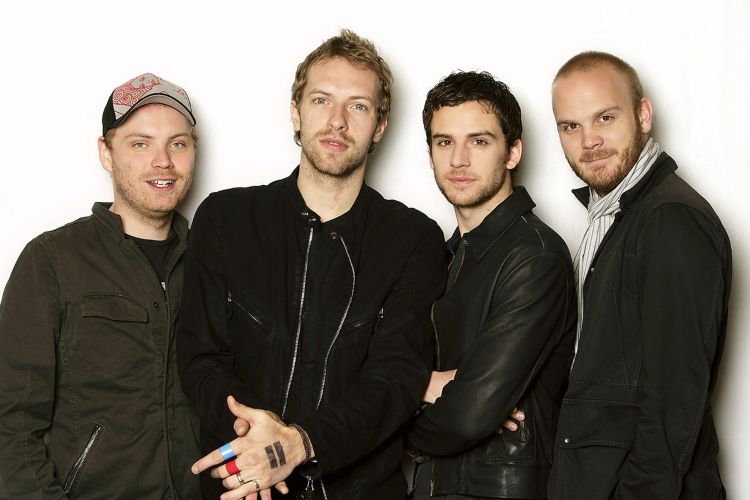
Coldplay didn’t always start with a recognizable name as smooth as their current one. Band members Chris Martin and Johnny Buckland first met at University College London and started going by Pectoralz, and then later were known as Starfish.
When that name didn’t yield them the exposure they were looking for, a friend of theirs was in a band called “Coldplay,” which was originally coined from a book of poems called Child’s Reflections: Cold Play. Once the friend’s band had no interest in continuing their group, Starfish was renamed “Coldplay.”
Grateful Dead
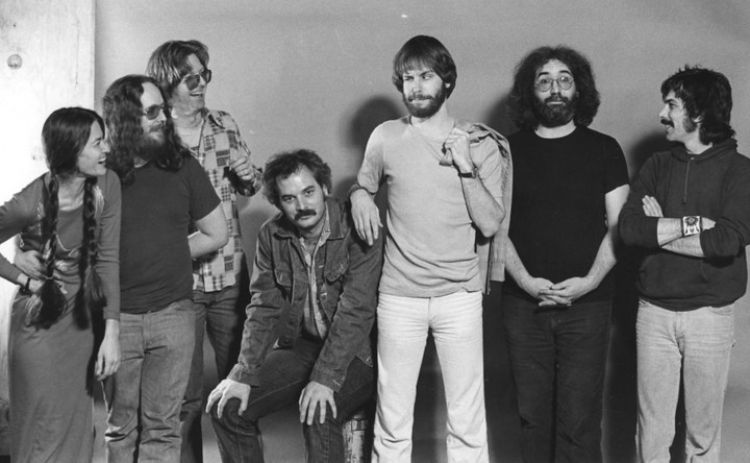
The Grateful Dead have become legends in music history. Their free-spirited attitude and activism became a cultural phenomenon that started in the 1960s and spanned decades.
It’s not a huge surprise that the name was created while under the influence. Frontman Jerry Garcia found the term in a dictionary of folklore, which referred to the soul of someone whose body was eventually able to be buried, and expressing thanks to a person that helped that happen. As Garcia died in 1995, and the core group still tours, it’s a lasting meaning.
Styx
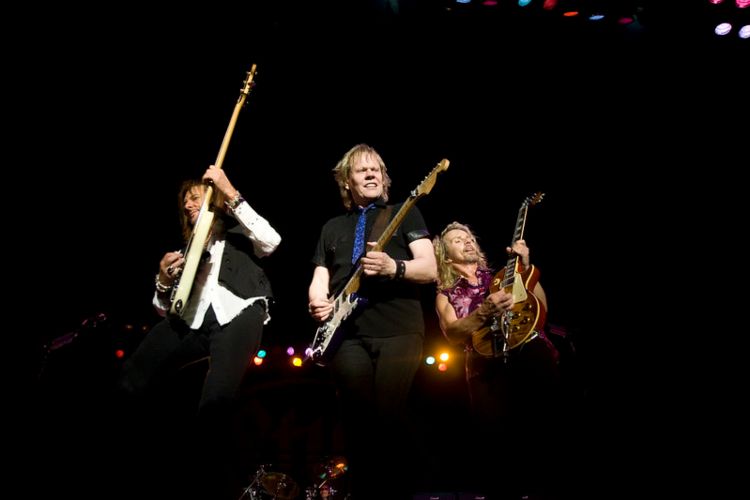
Considering of the origin of the name Styx, it’s a bit of a surprise that the band doesn’t have more of a traditional heavy metal or hard rock sound. This group that was formed in Chicago in 1972 opted for more of a softer rock sound in the 1980s.
Styx, according to Greek mythology, refers to the river that runs from Earth to Hell. For this band that is known for power ballads that mix melds rock with acoustic guitar and synthesizers carries a much softer sound that the group name implies.
Def Leppard

Inspiration can strike at any point in life, and sometimes an idea will be kept for years until the time is right. Rocker Joe Elliott came up with the name “Deaf Leopard” in the same place that a lot of people daydream: school.
He confessed that a hobby he would like to do was write fake reviews for fictional rock bands while in a high-school English class. Original Percussionist Tony Kenning recommended changing the spelling so the band be perceived “less punk.”
Green Day
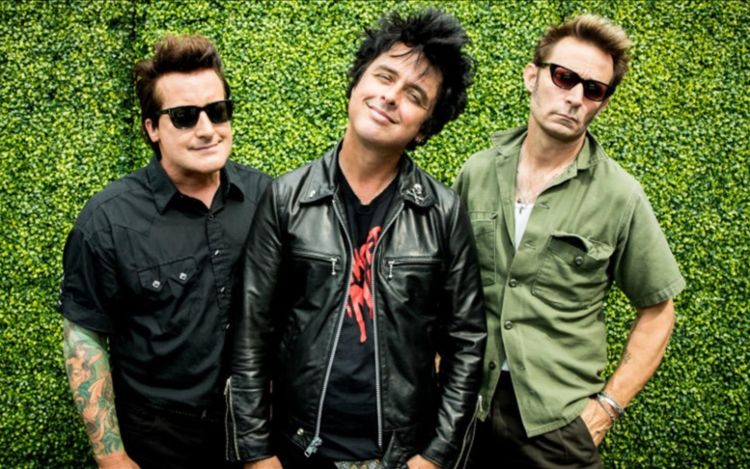
The punk rock trio from East Bay has a rumor floating around about their name. According to an appearance by Billie Armstrong, the rumor actually has some validity to it.
When asked by Bill Maher if the association with marijuana fueled the decision to name the band Green Day, Armstrong replied, “it’s absolutely true.” The name stuck to replace their original name of “Sweet Children.”
Pink Floyd
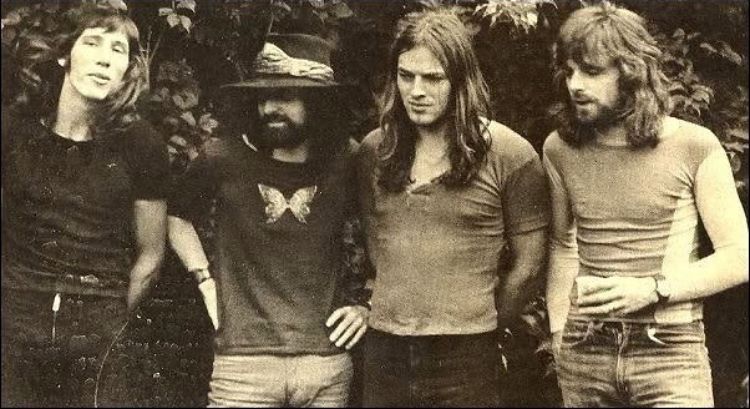
Manager Syd Barrett was in a bit of a pickle for his band. After finding out that his band was using another name illegally, he had to come up with something fast.
Combining two names of two Piedmont bluesmen from an old record collection he had–Pink Anderson And Floyd Council–he came up with Pink Floyd. Suffice it to say, that name has become more famous than the original name of Tea Set.
The Beatles

Probably the most famous band ever, these lads from Liverpool made history, changing the music industry forever. What would the world be like if The Beatles had gone in a different direction with their name?
Paul McCartney and John Lennon were big fans of music legend, Buddy Holly. They decided to take their inspiration from Holly’s backup band, which was called The Crickets. The rest was history.
Billy Idol

Known by some as William Broad, Billy Idol yearned to remake his image and put an edge on some of his original music to become widely known.
With contemporaries like Johnny Rotten and Rat Scabies, the rocker knew he needed something catchy that would encapsulate his confidence that would also express style. Rumor has it, that he got the name from a former school teacher who used to call him “idle.”
Genesis
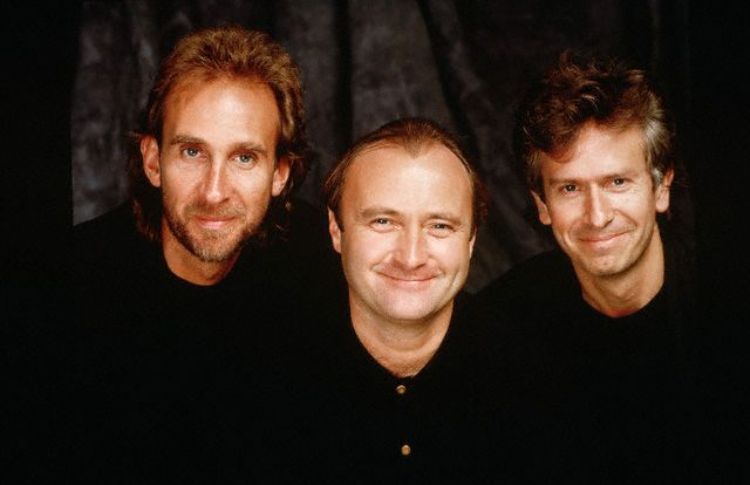
Genesis is a group of progressive rock pioneers who wanted a unique name to help them stand out amidst the plethora of other groups in the business. Jonathan King, alumnus from Charterhouse School went to a concert at the school while the band were students. He was a record producer and became the band’s manager.
King initially wanted to honor the band’s frontman Peter Gabriel, and call the group “Gabriel’s Angels.” He kept with the Biblical theme and went with “Genesis” instead, thinking it suggested the beginning of a new sound a new feeling.”
Blue Oyster Cult
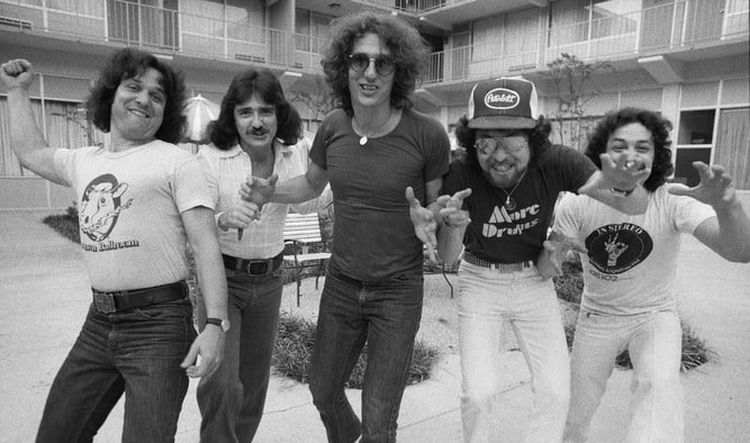
The signature sound of Blue Oyster Cult, who are best known for “Don’t Fear The Reaper,” first started out with a much different name. It’s probably true that they may not have seen a lot of success with the original name Soft White Underbelly.
Sandy Pearlman, early manager and producer of the group, gave them the signature name as a tribute to a secretive group of music aficionados from space.
The Doobie Brothers
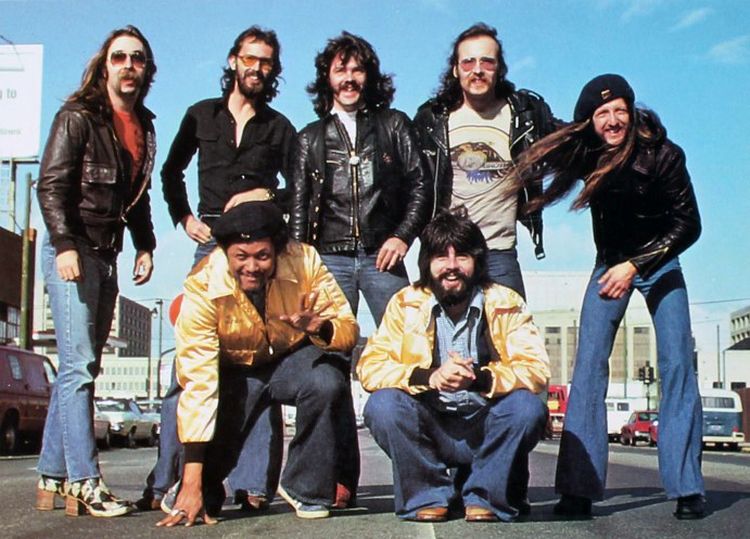
You may be able to guess what the inspiration was for The Doobie Brothers when they chose what name to go by. This one came at the suggestion of a housemate of theirs, like some other muses on this list.
Before emerging on the 1970s’ scene, they were hippies living in one house in Northern California. The housemate recommended it due to the band’s frequent use of marijuana, initially as a joke, but then they decided that the name worked.
Boston
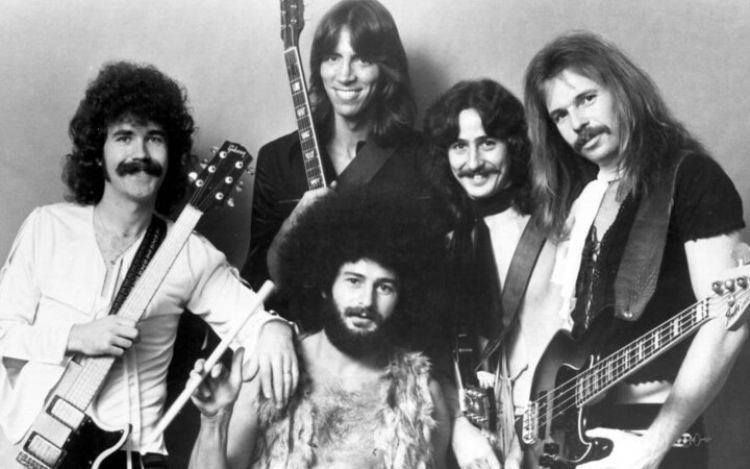
When they initially signed their contact with Epic Records, Tom Scholz and Brad Delp were the only ones listed on it, but toyed with the name Scholz-Delp. Ironically, Scholz would end up in a dispute with other band members about the name ownership.
Scholz and a producer and engineer thought of ideas for what to call the new band, and decided on “Boston” since they had strong musical roots to the city. Even as a student at a Toldeo high school, Scholz would frequently listen to a local Boston radio station.
Goo Goo Dolls
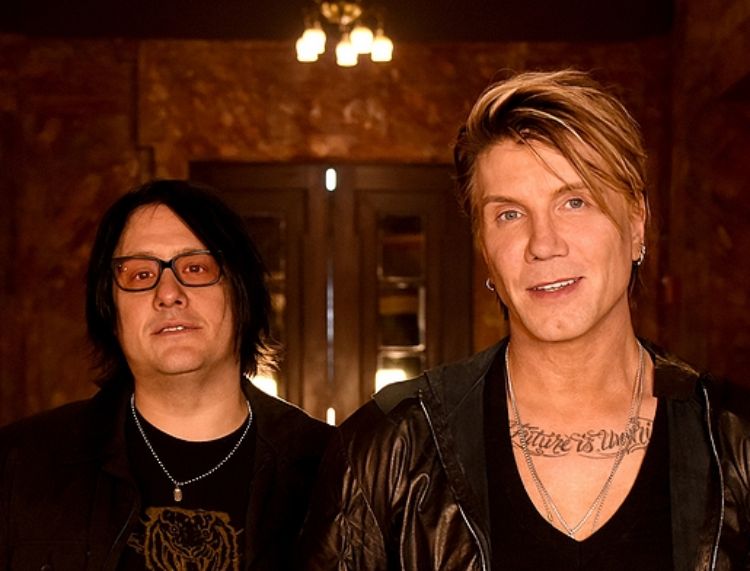
Robby Takac and George Tutuska had been friends for a long time since their school days and ended up meeting vocalist John Rzeznik when he was part of a band called The Beaumonts with Takac’s cousin. Like some of the other bands on this list, they didn’t have a name until they booked a gig and needed one for that night.
They ended up seeing an ad in the magazine True Detective and saw the name for a toy called a Goo Goo Doll. Rzeznik has said that “it’s the best we came up with, and for some reason it stuck. If I had five more minutes, I definitely would have picked a better name.”
Foreigner
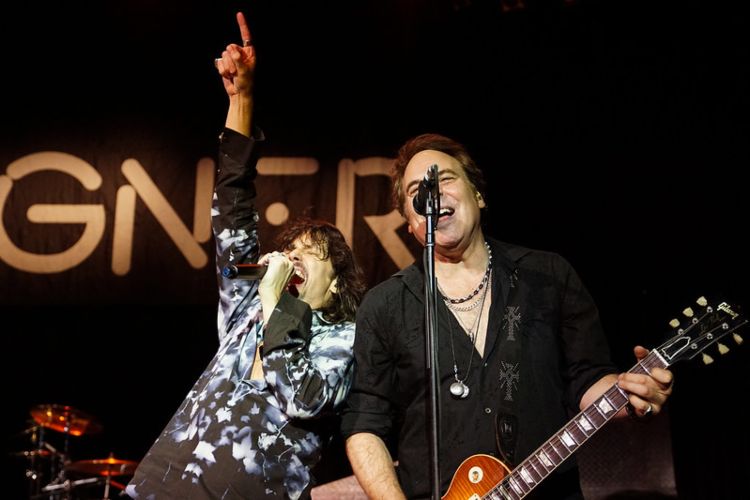
The band Trigger experienced a serious bummer when they found out their preferred name was being used by someone else. Mick Jones had a brainstorming session and settled on “Foreigner.”
The name was chosen as sort of an inside joke. Since the group was initially made up of three Brits (Ian McDonald, Dennis Elliott, and Mick Jones) and three Americans (Lou Gramm, Al Greenwood, and Ed Gagliardi), they found that a few of them would always be foreigners wherever they toured.
Chicago
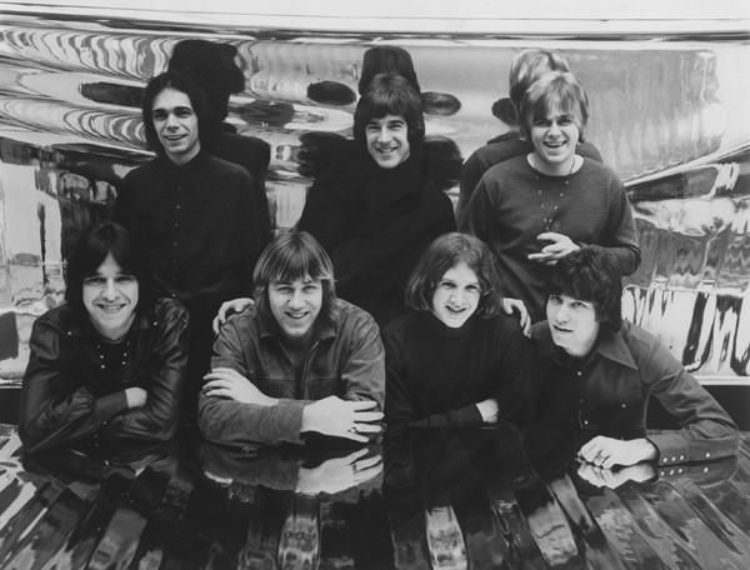
After the band formerly called “Big Thing” moved to Los Angeles and signed with Columbia Records in 1968, Jimmy Guercio, who would be slated as the band’s future producer, decided to change the name.
Guercio chose Chicago Transit Authority in honor of the bus line he took to school every day. This would end up being shortened to Chicago after the release of the group’s first album.
Deep Purple
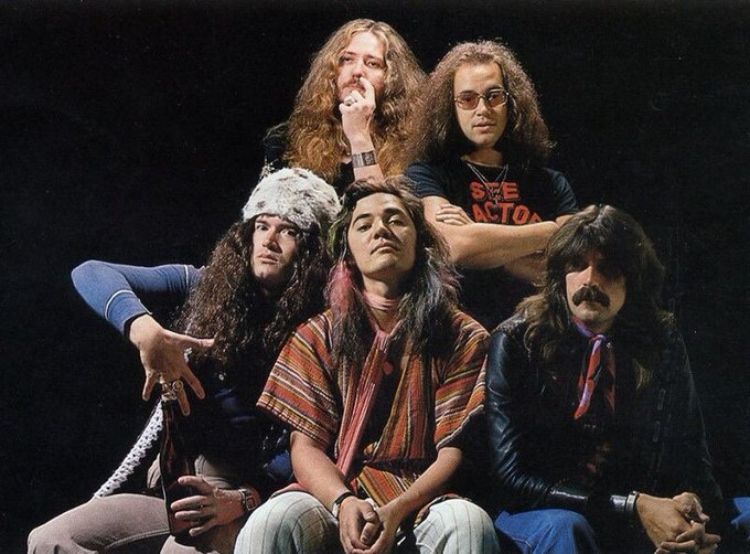
This British-invasion band had been known as Roundabout before a song from the band Yes came out with that name. They decided to reinvent their brand due to waning popularity.
At the suggestion of guitarist Ritchie Blackmore’s Roundabout morphed into Deep Purple. The name came from a song that came from the Paul Whiteman band, a big-band song from the 1930s.
Bad Company
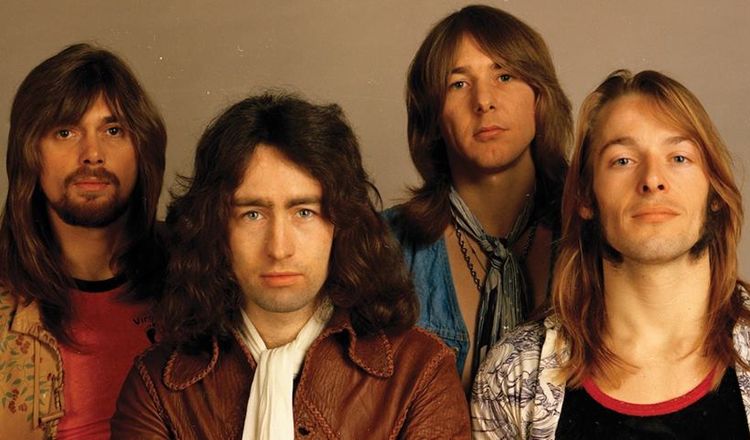
Paul Rodgers of Bad Company fame claims his inspiration for the band’s name came from a song he’d crafted after viewing a 1972 Jeff Bridges flick. Bridges plays a con man during the second half of the 19th Century.
The movie, which takes place in the 1860s depicts images of the wild west, the Civil War, and early settlers, which inspired Paul Rodgers to repurpose the name of the movie into the name of the band itself.
Weezer
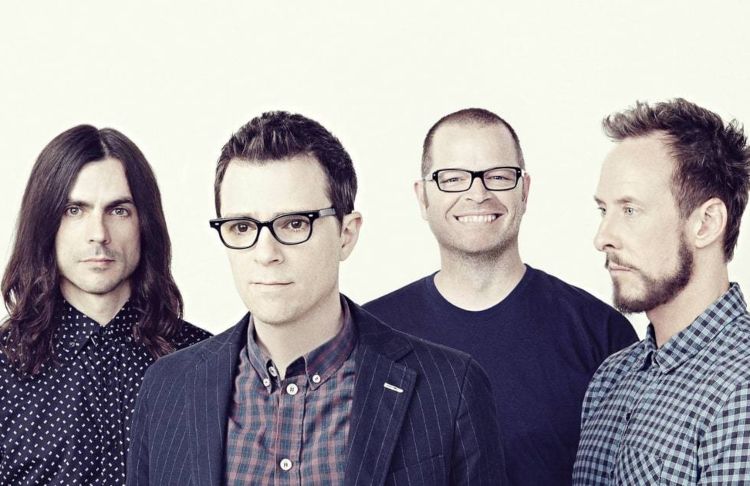
This band got one of its big breaks opening for future actor Keanu Reeves’ band Dogstar in 1992. Lead vocalist Rivers Cuomo knew they needed a name before the big gig, since a previous name of Sixty Wrong Sausages wouldn’t do.
Weezer was debatably a nickname given to Cuomo by his father after his parents separated. He would write letters to his son, addressed, “To Weezer.” Other reports say that it came from a mean nickname that other kids would give Cuomo because of his asthma.
Buffalo Springfield
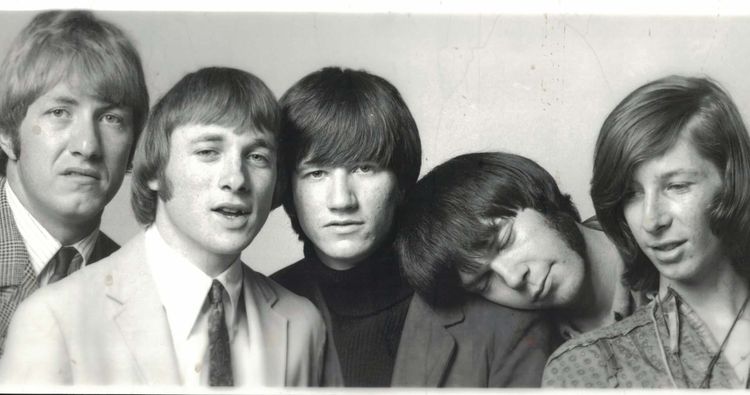
As we’ve seen from other bands on this list, there isn’t necessarily an impactful reason for why a group picks a name. Sometimes it’s just what they toss out and ends up sticking.
The same was the case when Stephen Stills, Richie Furay and Neil Young teamed up with Dewey Martin and Bruce Palmer to form Buffalo Springfield. The group that is best known for “For What It’s Worth” got its name when Stills and Furay saw the words on steamroller outside of where they were living.
Derek And The Dominos

Eric Clapton has appeared on this list, and for good reason, as he’s been part of music history in a variety of groups. In the early 1970s, a collaboration between Eric Clapton, Carl Radle, Jim Gordon, and Bobby Whitlock left the group struggling to find a name.
The group had been called at what point Del and the Dominos but they settled on Derek, a combination of Eric and Duane’s names. Clapton’s producers worked on clarifying any confusion by giving out buttons which had the words “Derek is Eric” on them.
Dire Straits
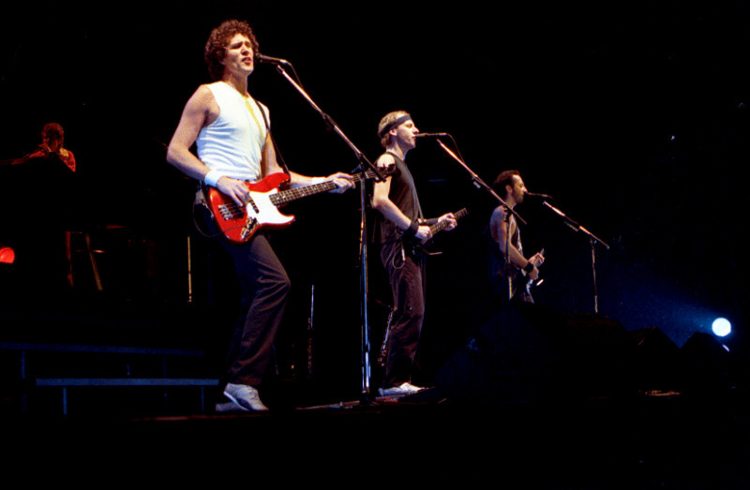
Dire Straits was formed by bandmates John Illsley, Pick Withers, and two brothers David and Mark Knopfler. The group that is known for the song “Sultans of Swing” got the name out of thin air from a suggestion from Withers’ roommate.
The roommate threw the name out there during a rehearsal in a kitchen in someone’s apartment. The name is believed to have been a subtle reference to their struggling financial situation. They ended up recording a five-song demo under the label.
Queen
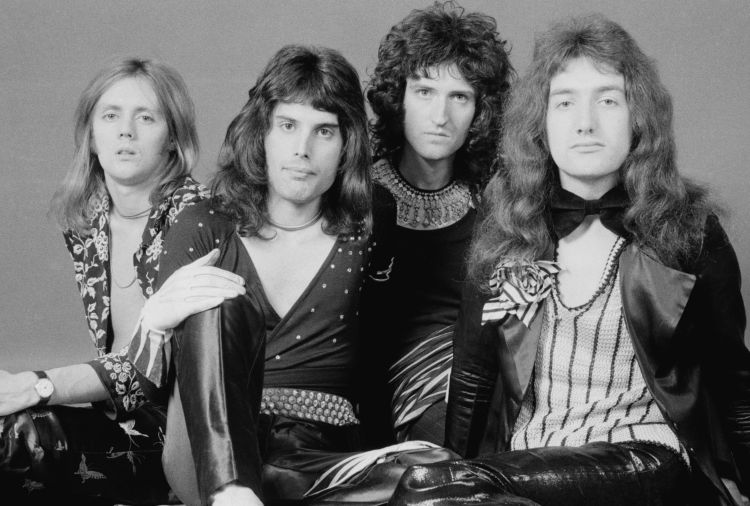
The movie Bohemian Rhapsody takes some liberties with the story of the band Queen. The movie did depict how Farrokh Bulsara first teamed up with Tim Staffell of Smile when they were at Ealing Art College together in London.
Bulsara was a fan of the band before joining in 1970. When Staffell chose to go solo, Bulsara changed his name to Freddie Mercury and persuaded the other band members to adopt the name Queen for a fresh start. July of 1970, they did their first gig with the new name.
Electric Light Orchestra (ELO)
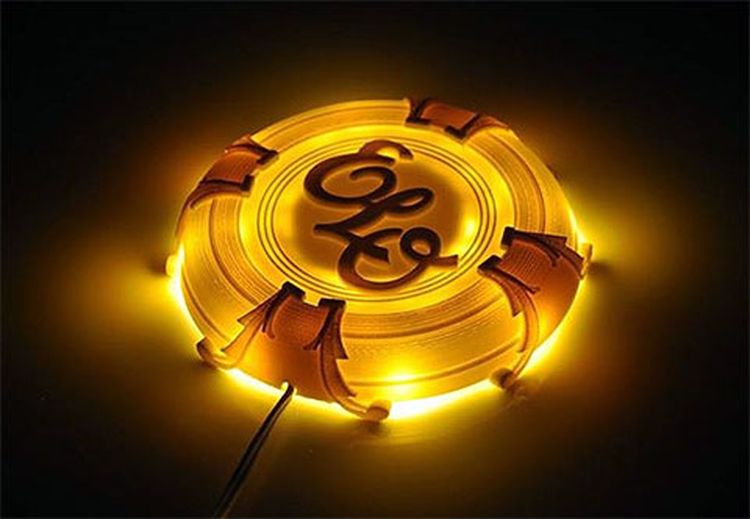
Leave it to a 70’s band to come up with an electrifying version of orchestra music. The vision for Electric Light Orchestra, or ELO, was a pop and rock version of classical sound.
Band members Jeff Lynne and Roy Wood chose the name to pay homage to the British phenomenon of light orchestras, specializing in easy listening, as opposed to classical music. The band also had a light bulb on early album covers for an extra reference.
The Faces
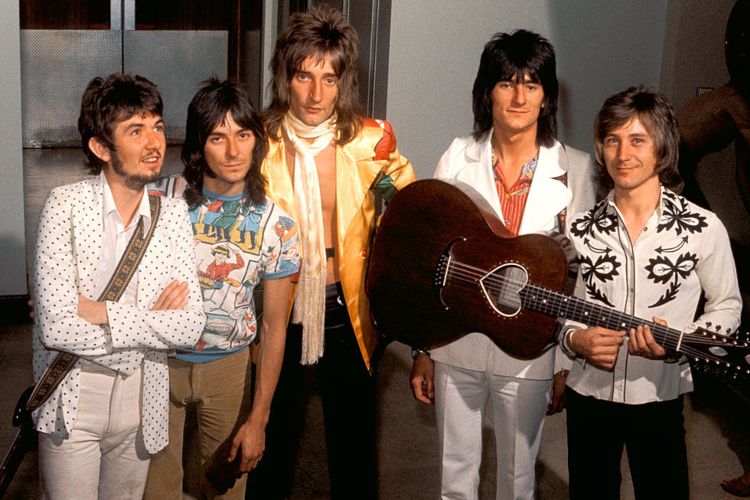
The Small Faces first emerged on the ’60s rock scene, as well as the mod scene, which was a subculture in London, influencing different fashion trends. They went with that name originally because of the height and a mod term for someone with style was the word “face.”
Original band member Steve Marriott was eventually replaced by future superstar Rod Stewart, as well as Ron Wood. The band decided to change their musical style and shorten the name as well.
Cheap Trick
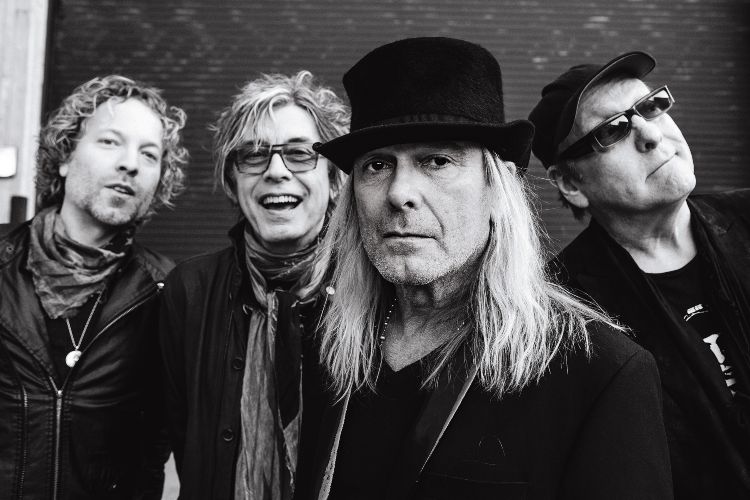
Cheap Trick’s origins begin with the 60s band Fuse. The first album they released did not do very well. So the group decided to move to Philadelphia to try and reinvent themselves.
Part of that rebranding had them attending a concert for the band Slade. Bassist Tom Petersson thought Slade had used “every cheap trick in the book” during that performance, and that stuck.
Foghat

Sometimes a decision is very tough to be made, and only at the very last minute does inspiration strike. That was the case for Foghat when it came to finally deciding on what name to go with.
Just as they were about to finish their first album, they were still having a hard time for what to call the band. Possible names that were suggested and thrown out were “Brandywine Track” and “Hooch” before Dave Peverett, the guitarist was playing Scrabble and made up the word.
The Cars

The Cars have one of the most recognizable sounds in the 80s; hit singles and electronic innovation made them a very popular band in their time.
David Robinson wasn’t just the band’s drummer. Before The Cars, he was known for being a part of Modern Lovers. He recommended the name for the band, and ended up playing a vital part in their album-cover art.
Grand Funk Railroad
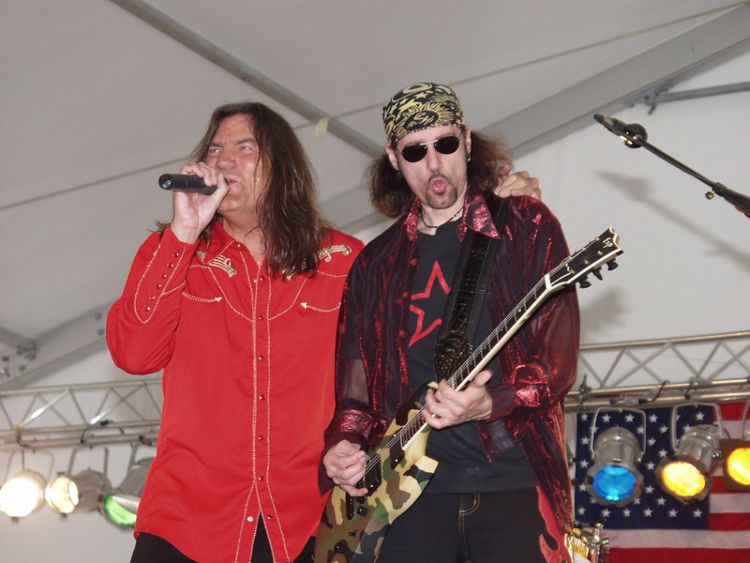
Band manager Terry Knight grew up in Flint Michigan, taking his name inspiration from where the Grand Trunk Western Railroad runs strong to this day.
The band name had a few different iterations, first being known as Grand Funk for a time. The band members finally settled on Grand Funk Railroad, encapsulating their signature sound and style.
Humble Pie
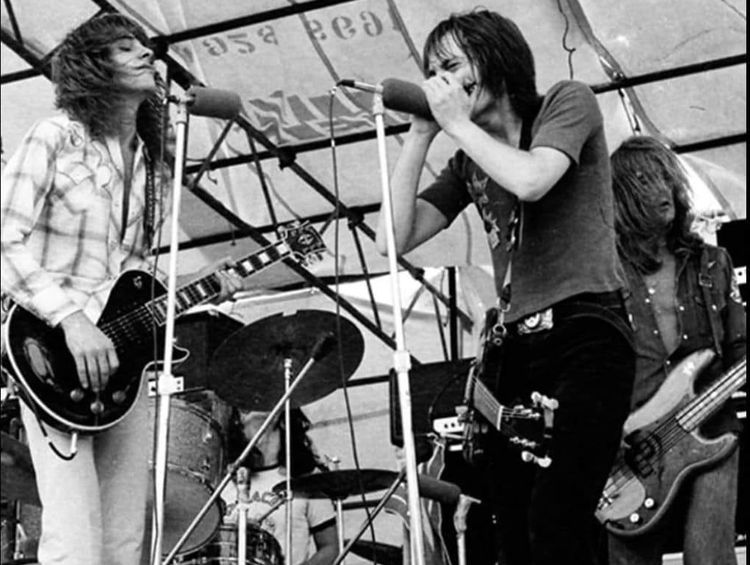
After Steve Mariott abruptly left the Small Faces with a gaping hole, frontman Peter Frampton called all other band members together to brainstorm. According to Frampton, they were talking about new names within hours.
Much like any time people are tossing around ideas, there will be inevitably some suggestions that aren’t going to hit the mark. One of which was the suggestion of drummer Jerry Shirley, which was the name Evil Cardboard. It ended up being departed-member Steve Mariott who mentioned Humble Pie.
Iron Maiden

On Christmas 1975, Steve Harris worked on forming a new group, after leaving his previous band, Smiler. He gathered talent together and got the inspiration for Iron Maiden shortly after.
Harris thought of the name when watching a movie, The Man In The Iron Mask, based on the book by Alexander Dumas. There was a medieval device that impaled people, and was a pretty excruciating method of torture, and it was called an iron maiden.
The Police

Rumor has it that drummer Stewart Copeland had The Police named before frontman and vocalist Sting even came aboard. It’s pretty fortunate that he had no issues with the name.
Some theorize that The Police was a reference to Copeland’s father, who held a lofty position within the CIA, who ended up being the band’s manager. As fun as it is to conjecture where the name originated, some say that Copeland just happened to see on the side of a cop car and it resonated with him.
Bachman-Turner Overdrive (BTO)

Bachman-Turner Overdrive (BTO) are a Canadian band whose most iconic songs are “Takin’ Care Of Business” and “You Ain’t Seen Nothin’ Yet.” The name doesn’t have quite the background story as some of the others on this list.
BTO’s collaboration was the result of guitar player Randy Bachman joining forces with singer/bassist Fred Turner. The band also added Randy’s brother Robbie Bachman to play the drums.
Judas Priest
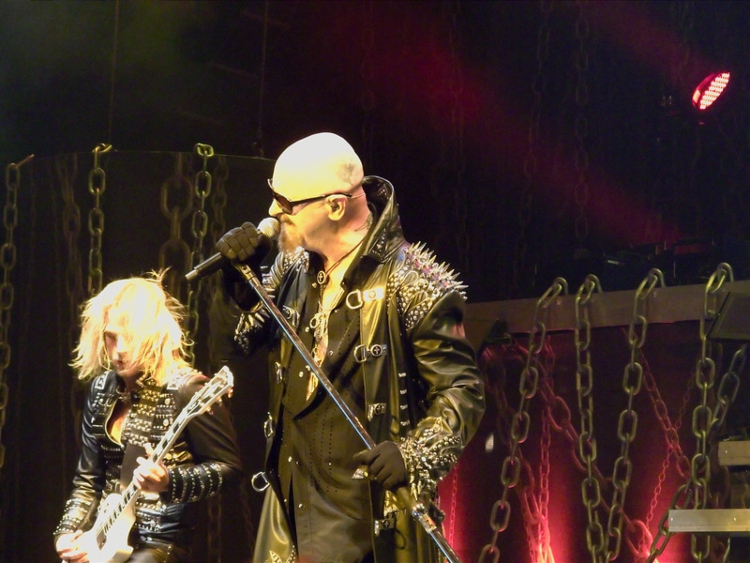
Bruno Stapenhill first heard a song called “The Ballad of Frankie Lee and Judas Priest” by fellow-member of this list, Bob Dylan, and thought it was perfect. He then pitched the idea to the first frontman, Al Atkins.
Atkins was at first unimpressed, telling Bruno that “he was never really into Bob Dylan.” Despite that, Stapenhill still says that Atkins admitted, “Oh, that’s a great name,” and inevitably it was.
Blind Faith
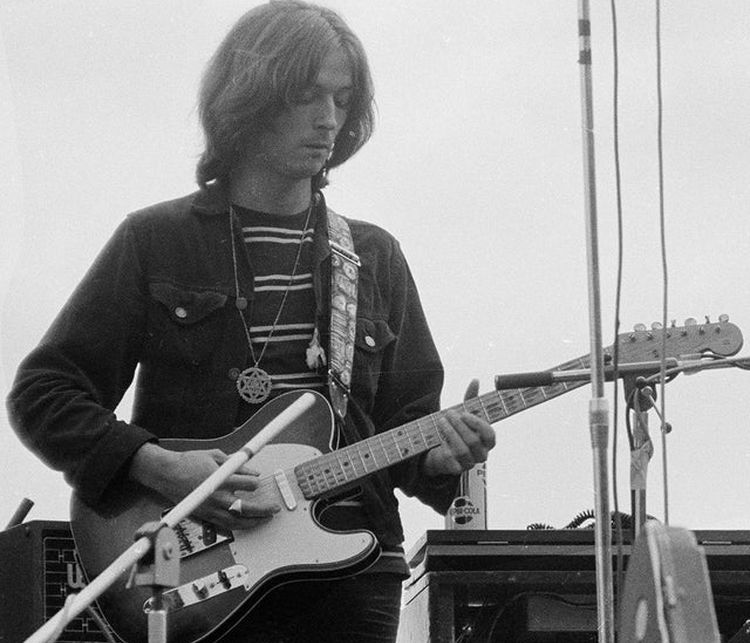
Blind Faith was an original rock supergroup that was short-lived with musical stars, Eric Clapton, Steve Winwood, Ginger Baker, and Rick Grech, and had the potential for greatness at the end of the 1960s.
A photographer who captured the group on a controversial album cover attached this iconic name to his picture, and the name stuck for good.
King Crimson

The first lyricist for the group King Crimson, Peter Sinfield, wasn’t too fond of the previous suggestions given for a name by his predecessors. He particularly disliked the original name Giles, Giles, and Fripp, and craved something with more personality.
Originally going for something like Led Zeppelin, but “with a bit of power to it,” Sinfield thought of King Crimson, a reference to Beelzebub in Milton’s Paradise Lost, that also had the tone of arrogance he wanted as well.
Meat Loaf
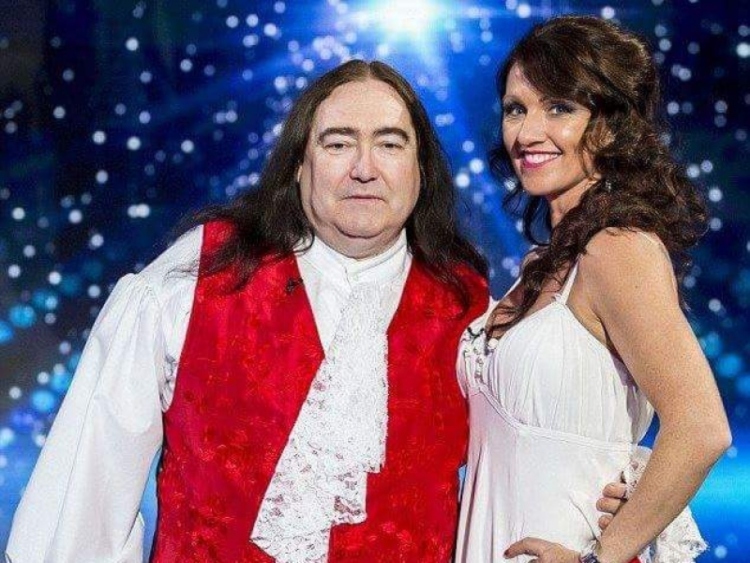
Marvin Lee Aday pretty much kept to himself in his Dallas apartment for a few years after his mother passed away. With the inheritance money, he ended up moving to Los Angeles.
That was where he started his first band, which was called “Meat Loaf Soul.” The musician came up with the name “Meatloaf” after a football coach he had in high school called him that as insult.
Ozzy Osbourne

Ozzy Osbourne has built a veritable empire around his name and iconic stage character, known for offensive lyrics and equally offensive stage antics. His band, Black Sabbath, appears on this list as well for having a distinctive name.
Ozzy’s real name is John Michael Osbourne. “Ozzy” was actually a derogatory nickname given to him by grade school classmates. Much like Meatloaf, he was able to turn this jab into an entire persona that would make him a legend.
Badfinger
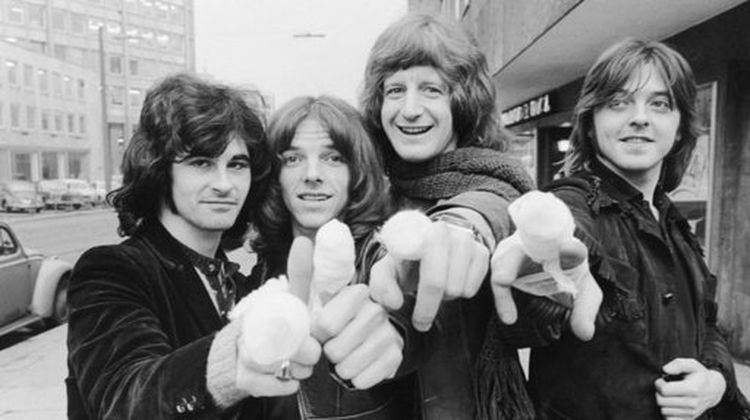
This eclectic group started in the 1960s as The Iveys, but their image seemed a tad too bland to keep up with the rapidly evolving music scene of that era.
Neil Aspinall conceptualized Badfinger, which was a variation of the original title of “Bad Finger Boogie,” the original title of The Beatles’ song “With A Little Help From My Friends.” The Beatles actually signed The Iveys to their record label Apple Records, and the name Badfinger was able to be used.
Poison
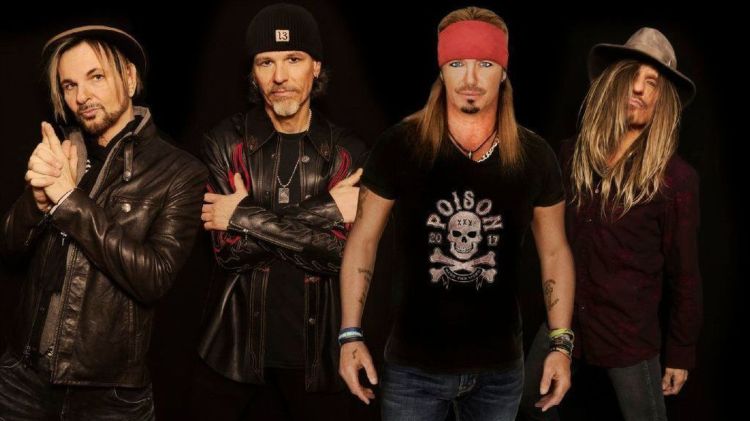
Bret Michaels started rocking while playing with a basement band called Laser back in Mechanicsburg, Pennsylvania. He then decided to collaborate with a friend of his from childhood, Rikki Rocket to form the Spectres.
Teaming up with Matt Smith and Bobby Hall, the two of them created a group called Paris that was known for playing covers of different rock songs in bars. They built a strong following before making two monumental moves in 1980: changing the group’s name to Poison and moving to Los Angeles.
REO Speedwagon

The Ransom Eli Olds was the predecessor of the pickup truck that was unrolled in 1915. So in 1967, when Neal Doughty was in college he had heard of the name and knew it was perfect.
He has said that he’s told people it was the only thing that he learned in college. In a class that was about the history of transportation, he remembers REO Speedwagon being written on the board. Sometimes inspiration just strikes perfectly.
Scorpions

The notion that bands chose a name that sounds dangerous isn’t true for a ton of groups on this list, but is believed that’s where the name “Scorpions” came from. Two 70s power bands joined forces to make the unique sound that we know as Scorpions today, though their name was hotly deliberated for a time.
Members of Dawn Road combined with an existing group that went by Scorpions. They almost sided with being called Dawn Road, but since Scorpions was a known entity in the German hard-rock scene, the “tougher name” won out. Much like Eagles, they also do not have a “the” in their name.
Stryper
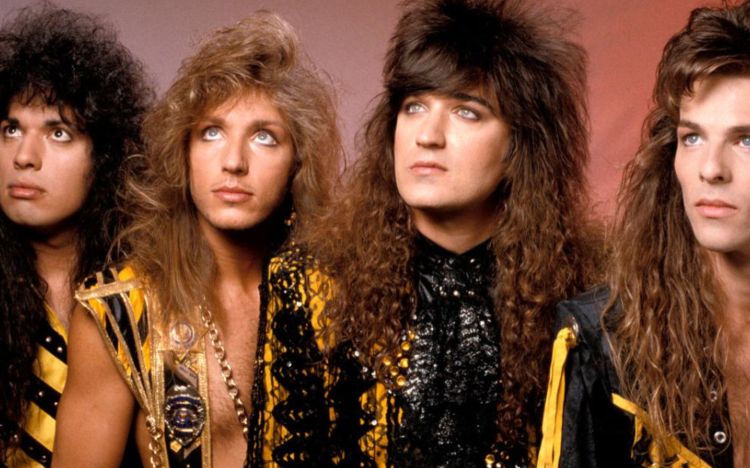
Believe it or not, some rockers get their names from the Bible and are pretty religious people. The name “Stryper” actually was taken from a Biblical verse in the book of Isaiah (53:5).
The King James translation says “But he was wounded for our transgressions, bruised for our iniquities, the chastisement of our peace was upon him, and with his stripes we are healed.” This verse that is often part of the band’s logo. Drummer Robert Sweet even came up with an acronym “Salvation through redemption, yielding peace, encouragement and righteousness.”
The Who

Much like other bands on this list, this group also seemed to have a tough time thinking of the right name for what to call themselves after being developed from an earlier group called The Detours. They had apparently had been going back and forth for days trying to find something that fit their musical vision.
At one point they tried to think of the goofiest suggestions that were also referencing not taking themselves too seriously such as No One, The Group, and The Hair. Roger Daltrey eventually said they chose “The Who” as almost a joke.
38 Special
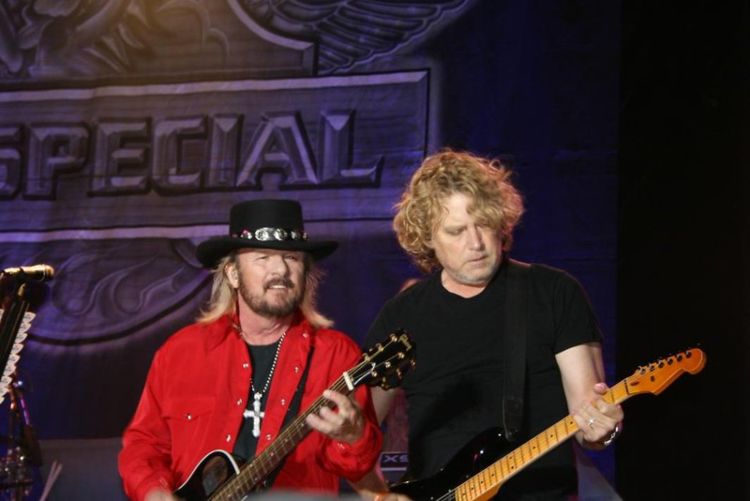
38 Special band members remember a time when some of their rehearsals used to turn violent. During one particular episode, policemen had to be called to break things up.
Don Barnes and Donnie Van Zant remember the cops carrying .38s as the weapon to stop the fight. Van Zant’s brother Ronnie ended up referencing the pistol in the Lynyrd Skynyrd Song “Saturday Night Special.”
Three Dog Night
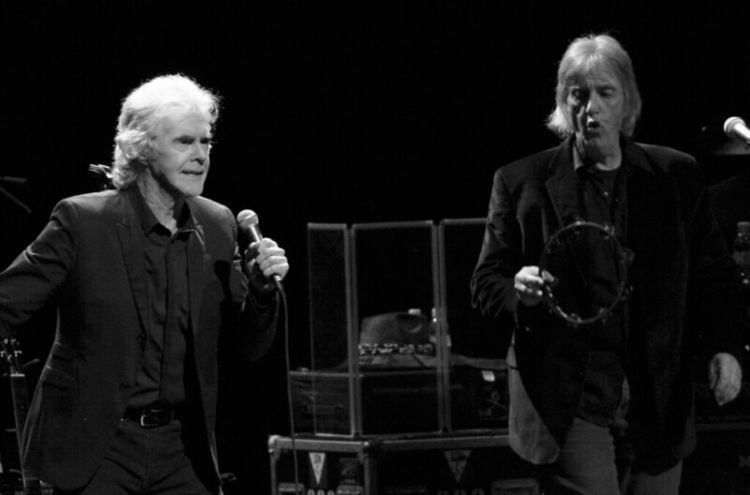
Danny Hutton’s girlfriend reportedly was the one who came up with inspiration for Three Dog Night. Danny was smart enough to hear her out and take it to heart.
She had heard an Australian outback tale of people roaming the outdoors who would have to use dingoes to keep themselves warm at night when the weather got really cold.
Toto

Toto was randomly selected as an identifying mark by band member Jeff Porcaro that he placed on demos and musical equipment. He apparently would jot the word quickly just to have some way of labeling them.
At one point, David Hungate, the bassist, noted to the others that the words “in toto” had a Latin meaning for “as a whole” or “all-encompassing.” That was enough to convince the band to use that as their name.
Uriah Heep
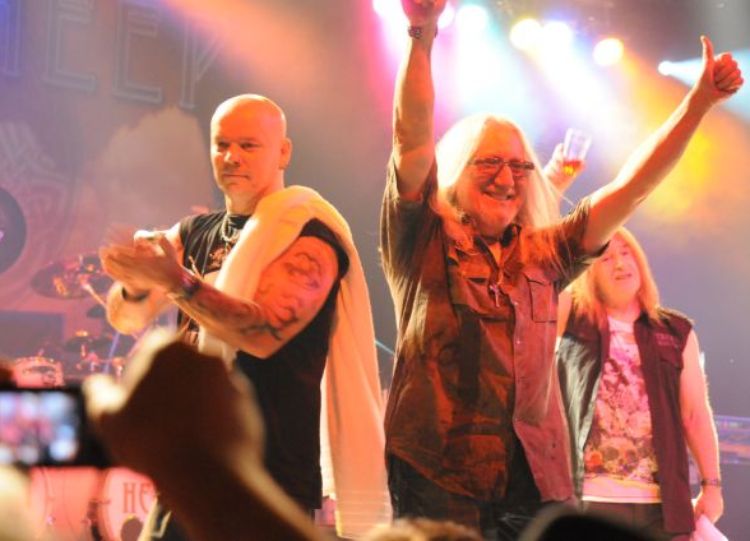
While some bands developed their monikers from having random suggestions thrown out, this group got its name from a classic work of literature. They settled on naming themselves after a character from Charles Dickens’ David Copperfield.
Uriah Heep happens to be a character in the novel who is untrustworthy and unlikeable. It turns out that the day that the band formed happened to be the 100th anniversary of Dickens, which had celebrations all over London.
Twenty-One Pilots

Twenty-One Pilots rose from relative obscurity to become one of the more popular bands of the 21st century. Like some of the other groups on the list such as The Doors or Uriah Heep, they also got their name from literature.
Lead singer Tyler Joseph was in a theater class and studying the play by Arthur Miller called All My Sons. Set in World War II, the protagonist discovers that some planes have faulty hardware, but nevertheless lets them fly, which results in the death of twenty-one pilots.
Korn
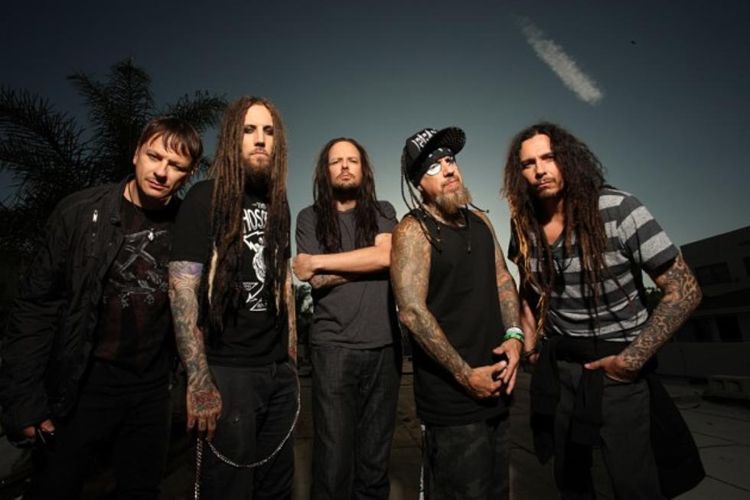
Bakersfield, California was the perfect place for a band of mischievous kids to coin the name Korn to signify musical greatness. They ended up being the pioneers for a new kind of heavy metal called “nu metal” and were responsible for making it mainstream.
Some of the original band members were part of a group called L.A.P.D., and were known by “Creep” briefly, but that didn’t last. The name “corn” was suggested, and initially rejected until James Shaffer suggested spelling it with a “K” and a backwards “R,” thinking of the similarity to the famous retailer Toys R Us, where some of the band members had previously worked.
ZZ Top
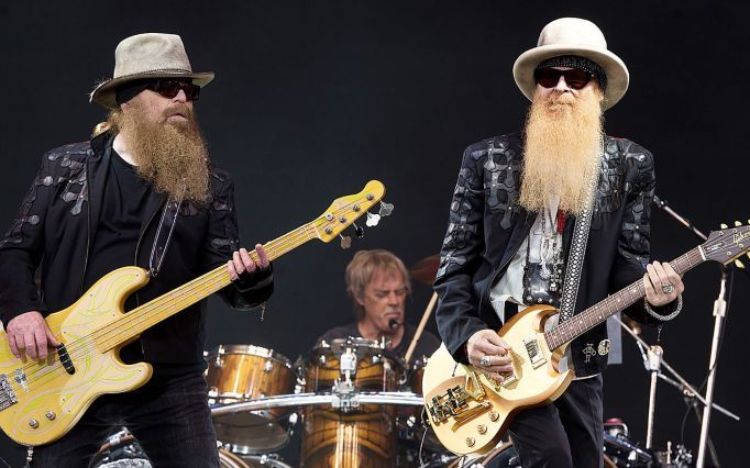
Guitarist Billy Gibbons had a bit of an obsession with the blues, and has helped bring elements of the music genre into ZZ Top’s music for years. In his autobiography, Billy F Gibbons: Rock + Roll Gearhead, he tells of how the name came about.
He was living in an apartment that was full of posters and flyers from various concerts, some of which were from blues singers Z.Z .Hill and B.B. King. After tossing around some variations such as Z.Z. King and B.B. Hill, he settled on ZZ Top.

